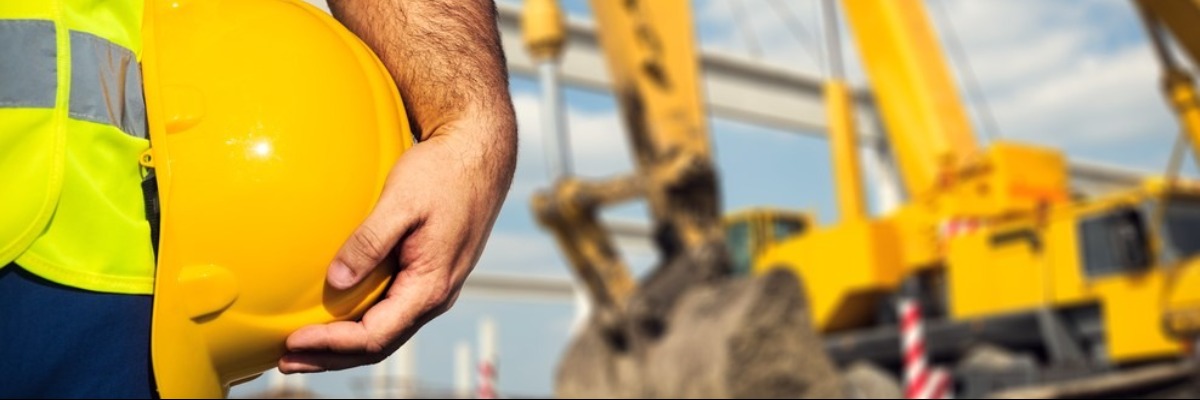
30 May, 2023/ by National Accident Helpline /News
Are dangerous jobs worse for your mental health?
Being in danger heightens your natural anxiety levels due to the fear affecting your body. Physiological symptoms of fear are prevalent when exposed to dangerous situations. The stress hormones cortisol and adrenaline surge in your body, your heart rate increases, and your blood pressure rises. These symptoms occur as a function to enable your body and muscles to react to danger by fighting or running; it's part of our primitive fight-or-flight instincts.
Common fear triggers in construction work include:
- Working at height.
- Machinery use.
- Dangerous weather conditions.
- Exhaustion.
- Falling materials/tools.
- Excessive noise or vibration.
- Unstable ground or scaffolding.
- Electrical equipment.
As a construction worker, in one of the most dangerous jobs, you are constantly in a state of fear. Whether you think you're scared or not, your body is continually reacting to the dangers around you throughout your whole shift. This level of ongoing daily stress damages your mental health before even considering time pressures or management pressures within your role.
Can poor mental health cause accidents?
In short, yes. Working in such demanding and risky conditions requires you to be in top form in order to remain safe. Your attention, focus, strength, and stamina are all reduced when suffering from poor mental health leaving you vulnerable to accidents.
What emotional factors can cause accidents?
It has become quite well-known that emotions cause road accidents when driving, but the same factors can also cause accidents at work. Heightened emotions of anxiety, anger, and stress evoke thoughts and dwellings which act as huge distractions whilst conducting high-risk work. One small lapse in judgment and mistake is made, resulting in an accident, injury, or a potential fatality.
What are the symptoms of poor mental health?
The key symptoms you may notice are behavioural or emotional changes, particularly any of the following:
- Feeling sad
- Lack of energy
- Loss of interest in day-to-day life
- Disassociation / disengaged with the present
- Negative thinking
- Anxiety or nervousness
- Low self-esteem
- Anger and aggression
- Forgetfulness
- Eating too much or too little
- Sleeping too much or too little
If you've noticed feeling any of these regularly it may be worth looking for some help or guidance on how to manage and improve your mental health, before an accident occurs.
How can accidents affect construction workers?
Most construction workers will experience or witness an accident at some point during their careers due to the industry's high-risk nature. Experiencing an accident will likely leave you with significant bodily injuries but witnessing an accident can leave you or colleagues with severe psychological injuries. Seeing an accident can be so traumatic that you are left with mental injuries such as PTSD or simply fear and lack of confidence for your safety at work. This can lead to poor mental health which, as discussed earlier, increases the likelihood of further accidents to occur.
Workers subjected to accidents in construction which resulted in injury or time off work may be eligible to claim. Get in touch today to see if you have a claim.
How do you handle stress at construction sites?
Key steps to managing stress in construction range from expressing thoughts and feelings to promoting mental wellness at work. Here's a list of actionable tips to help manage your construction work stress:
- Get it off your chest - Talk or journal your thoughts and feelings. It helps to change the perspective of your troubles and creates order in your mind.
- Exercise - Getting active and regularly exercising is one of the most effective stress relievers.
- Get enough sleep - Too little or too much sleep deteriorates your mental health. Aim for 7-10 hours a night to improve your well-being.
- Communicate - It's important to let your managers or colleagues know about any struggles you are experiencing in order for them to support you and make any changes that could be beneficial.
Start implementing these steps into your daily work and you should gradually see a positive difference in your state of mind.
What to do if you have a construction accident
If you have a workplace accident on a building site or construction project, it's important to handle the situation wisely to protect yourself.
5 steps to take after a construction accident at work:
- Seek immediate medical attention - visit the hospital, a first aider, or GP to ensure your injury is taken care of as soon as possible.
- Note witnesses - did anyone see your accident? You may need them to write a statement as evidence should you need to claim.
- Take photos of your injuries and the incident area.
- Complete an accident form or incident report with your employer/manager.
- Compile evidence - keep track of your injury, ongoing treatments, travel, time off work, witnesses, and related equipment of the incident. This can all be used in evidence should you have a legitimate claim for compensation.
Following these 5 steps will ensure your safety and health is a priority whilst also protecting your financial stability and employee rights. If you were to claim compensation after an accident at work, completing these steps will make the process easier and faster to complete.
Read more about mental health on our website, or get in touch today to make a claim or ask any questions you may have. We're always happy to help you.
Last updated 30.05.23